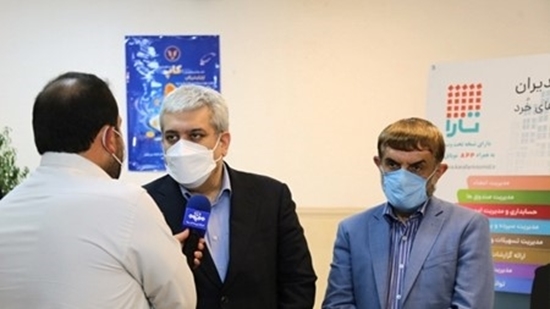Jampa Creative and Innovative House Launched; Sattari: Creative and innovative youth in low-income neighborhoods have a high capacity for change and entrepreneurship
"Jampa" Creative and Innovation House in the field of social innovations was opened in the Darvazeh Ghar neighborhood of Tehran with the presence of Sorena Sattari, Vice President of Science and Technology.

The center started in a low-income neighborhood at the Cave Gate to be a place to empower young people. There are 2,020 low-income neighborhoods in the country for which the empowerment plan is gradually being implemented.
7 knowledge-based and creative companies active in the fields of soft technologies and creative industries such as clothing, sports equipment, and animation and content production are located in the creative and innovation house "Jampa". Employment-based education and skills are to be provided to working children at the center to speed up the organization of working children. . This is done in the form of launching creative student startups.
Omid Entrepreneurship Fund to finance companies is also located in this center. Of course, a team from Amirkabir University is especially active to present new ideas in the field of textiles and clothing.
Successful entrepreneurs have a similar story
Vice President of Science and Technology Sorena Sattari said at the ceremony:: The world's best entrepreneurs and people who were able to change society did not have a money-based thinking structure. . A look at the story of successful entrepreneurs shows that most of them had a similar story and started from the basement.
The Vice President for Science and Technology continued: This is a structure that shows that low-income neighborhoods can be found with confident young people. Young people who can start their own business. What we do in creative and innovative homes is identify these people to change the community and the environment around them. Places like this center are the beginning for this, and of course, we had successful examples in other places. . We hope that these creative homes will be a good model for development in other neighborhoods, which will happen with the investment of the private sector and business accelerators.
The head of the Soft Technologies and Creative Industries Development Headquarters of the Vice Presidency of Science and Technology also stated: Private sector participation is the developer of this work. We in the government need to build infrastructure to reduce private sector risk for investment. Spiritual support is needed from the private sector.
According to Sattari, creative and innovative houses nurture people with ideas who form a team in this place and then form a company. These companies become empowered and can leave here and play a role in society. . So innovation centers are like greenhouses that grow flowers.
The Vice President of Science and Technology added: "What happens in different neighborhoods must be reproductive." . The process of setting up these centers must also be correct to be a place for neighborhood youth activities. All kinds of accelerators have to be engaged in it and creative ideas must be produced in it. . Of course, this means that the idea of the product must be achieved with the investment of the private sector to affect the neighborhood.
Referring to the changes made in the neighborhoods by launching creative and innovative houses, Sattari said: We have a successful experience in the Pamanar neighborhood, and that is the launch of Iraj's creative and innovative house, which also helped revitalize the neighborhood in addition to commercializing young people's ideas. There are creative young people in low-income neighborhoods who have a lot of potential for change that can be turned into successful entrepreneurs with good advice. We also support this action in the Deputy of Science and Technology.
Creative and innovative centers and houses are developed in low-income neighborhoods
Also in this ceremony, Ali Agha Mohammadi, a member of the Expediency Discernment Council, said ceremony: This center has two functions. First, the student's academic weaknesses will be eliminated, and second, the students will become a team and a business will be created for them so that they will not drop out of school due to financial needs. . When this model succeeds, it can be developed for all low-income areas of the country.
He also stated: At present, there are 260 low-income neighborhoods in Tehran province, after which we will develop it in other neighborhoods. Districts 12, 13, and 14 will set up these centers after this neighborhood. . The provinces of Isfahan, Khuzestan and Sistan and Baluchestan are also equipped with these creative and innovative houses.






 adress : No. 209 , between Navab Str and Roudaki Str. Azadi Str. Tehran - Iran
adress : No. 209 , between Navab Str and Roudaki Str. Azadi Str. Tehran - Iran  phone: +98 21 63478000
phone: +98 21 63478000